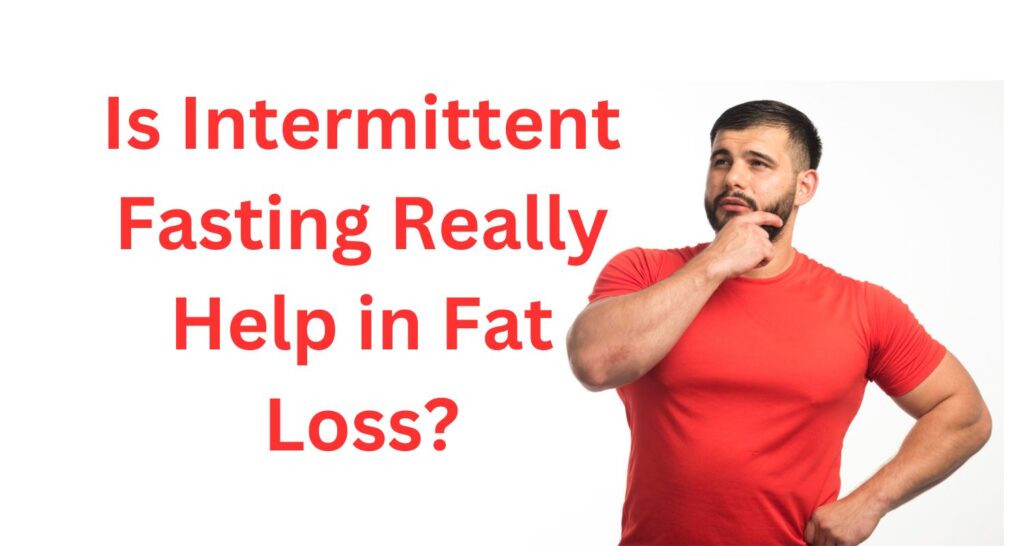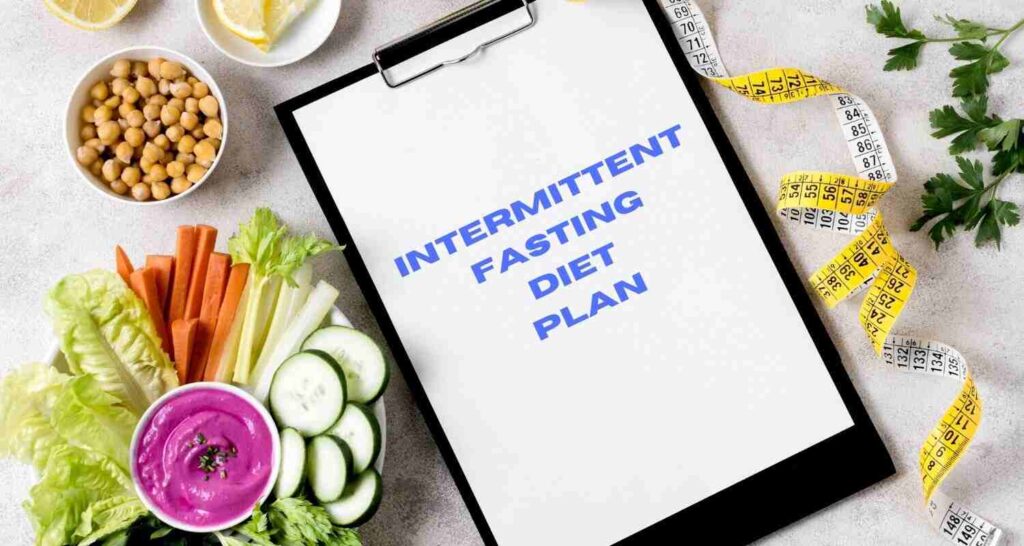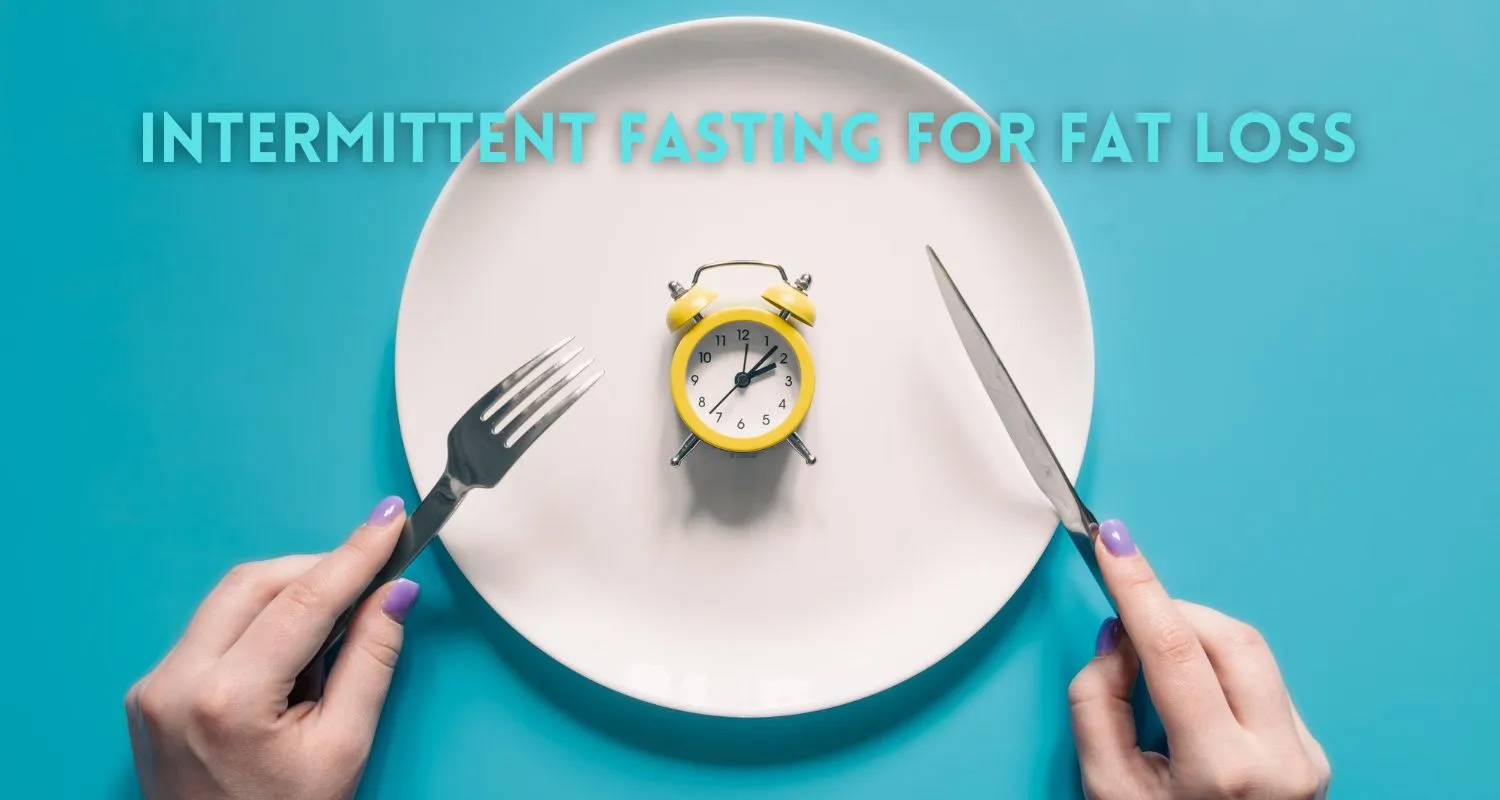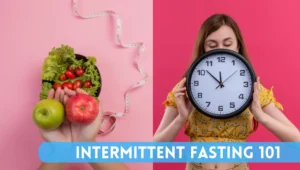In the quest for effective and sustainable fat loss, the popularity of Intermittent Fasting for Fat Loss has climbed. This time-restricted eating approach not only offers promising results but also raises common questions. In this comprehensive guide, we will address the top 5 intermittent fasting-related questions frequently asked by those striving to shed excess fat. First and foremost, we must understand who can profit from intermittent fasting.
Table of Contents
ToggleIntermittent fasting may be a great option for many people, but it’s very important to know the person medical condition before considering intermittent fasting diet plan or intermittent eating pattern. Meanwhile this method incorporates many health benefits such as fat loss, mental wellbeing, metabolism boosting and many more. intermittent fasting is not suitable fat loss option for every individual. Here’s in this section I have overview about who can do intermittent fasting and who might need to avoid it:
Who Can Consider Intermittent Fasting

Generally Healthy Individuals
Generally healthy individuals word gives reference of those peoples with no medical condition, who are generally healthy from body and mind may find doing intermittent fasting is safe and effective approach.
Those Looking for Weight Management
Individuals aiming for weight loss or weight maintenance may benefit from intermittent fasting, as it can help create a caloric deficit and improve metabolic health.
Stable Blood Sugar Levels
Those with stable blood sugar levels and good insulin sensitivity may find intermittent fasting easier to adapt to.
People Wishing to Improve the Metabolic Health
Research indicate that intermittent fasting enhances metabolism health markers like levels of lipids and sensitivity to insulin.
Individuals with a Flexible Lifestyle
People with a lifestyle that allows for adherence to fasting windows and adjustments to meal timing may find intermittent fasting more practical.
Who Should Exercise Caution or Avoid Intermittent Fasting
Breastfeeding or Pregnant Women
Before starting intermittent fasting, women in phase of maternity must consult with a doctor. This is because an underdeveloped baby depends on them for proper nutrition.
Individuals with Eating Disorders
Intermittent fasting (IF) is never suggested to people who have past medical history of eating disorders such as anorexia, gastric and vomit, it may worsen unhealthy eating patterns.
People with Chronic Medical Conditions
Individuals with chronic medical conditions should consult their healthcare provider before starting intermittent fasting, as adjustments to medication and monitoring may be necessary.
Children and Adolescents
Childers and childhood stage boys are not recommended Intermittent fasting, as their nutritional needs are more important for early growth and development.
Those with Hormonal Imbalances
People with hormonal imbalances should exercise caution, as intermittent fasting may affect hormonal levels.
Elderly Individuals
Elderly individuals may need to approach intermittent fasting with caution, as nutritional requirements and tolerance to fasting may vary.
Important Considerations
Individual Variability
People react differently to intermittent fasting, so it’s crucial to pay attention to how your body responds and consult a healthcare professional if needed.
Medical Supervision
Individuals with existing medical conditions or concerns should consult with a healthcare provider before starting intermittent fasting. Medical supervision can help tailor the approach to individual health needs.
In summary, while intermittent fasting can be a viable option for many, it’s crucial to approach it mindfully and with consideration for individual health circumstances. Talk with the medical professional before stepping into a new pattern diet plan or eating system. It is to consult with professional nutritionist especially for those with causal health conditions.
Top 5 FAQ about Intermittent Fasting

Is Intermittent Fasting Really Help in Fat Loss?
The potential of intermittent fasting could be helpful in weight loss or fat loss has brought more spotlight on it. Research suggests that by incorporating designated eating and fasting periods, individuals can stimulate their metabolism and optimize fat-burning mechanisms. The key lies in understanding the balance between the fasting and eating windows, creating a caloric deficit without sacrificing essential nutrients.
What Is Better way of Intermittent Fasting for Fat Loss?
Choosing the right intermittent fasting method depends on individual preferences, lifestyle, and health goals. Popular methods include the 16/8 method, where one fasts for 16 hours and eats within an 8-hour window, and the 5:2 method, involving regular eating for five days and a restricted caloric intake for two non-consecutive days. Experimentation may be necessary to find the method that aligns with your routine and yields the best fat loss results.
How Do I Burn the Most Fat with Intermittent Fasting?
Optimizing fat burn during intermittent fasting involves a holistic approach. Focus on consuming nutrient-dense foods such as whole grain item, drink lot of water and stay hydrated aal day long, and engage in regular physical activity such as hiking, jogging, dancing or even gardening or in any workout program. Combining intermittent fasting with a well-balanced diet and exercise routine enhances its fat loss potential. Additionally, paying attention to hunger cues and avoiding overeating during the eating window is crucial for effective results.
How Much Fat You Can Lose in 1 month of Intermittent Fasting?
every individual has different body type and fat loss result vary on individuals body type, their metabolism, level of activity and consistency with the intermittent fasting program. While some may experience rapid changes, aiming for a sustainable and realistic goal of 1 to 2 pounds per week is generally recommended. Consistency in following the chosen intermittent fasting method is key to achieving and maintaining fat loss over time.
What Is the Best Intermittent Fasting Window to Lose Belly Fat?
Targeting belly fat through intermittent fasting requires a comprehensive approach. While there isn’t a one-size-fits-all solution, some find success with methods like the 16/8 approach, promoting fat utilization. However, it’s crucial to understand that spot reduction is a myth. These include improved insulin sensitivity, enhanced cognitive function, and potential longevity advantages. Intermittent fasting not only help in wellbeing but also help in reducing long-lasting sicknesses by promoting cellular repair and autophagy.
You may be interested in this blog Post -: Top best weight loss products
Sample Diet Plan of Intermittent Fasting

To kickstart your intermittent fasting journey, here’s a sample diet plan:
8:00 AM – Wake Up: Black coffee or green tea (0 calories)
12:00 PM – Break Fast: Nutrient-dense salad with lean protein, whole-grain or quinoa for complex carbohydrates, and olive oil or avocado or for healthy fats.
3:00 PM – Snack: Greek yogurt with berries and a handful of almonds or walnuts.
6:00 PM – Main Meal: Grilled fish or lean meat, steamed vegetables or stir-fried greens, and sweet potato or brown rice for carbohydrates.
8:00 PM – Dessert (if desired): Dark chocolate or a piece of fruit.
8:30 PM – Begin Fasting Window.
Remember, this is just a sample diet plan, and customization according to your food preferences and fasting timing is recommended. have words with your personal trainer or personal nutritionist is advised.
Conclusion
Approaching intermittent fasting mindfully can be a potent tool for fat loss and overall health. Understanding the principles behind different methods, addressing common questions, and embracing the broader benefits can guide you toward a healthier, more sustainable lifestyle.
Keep in mind that every second individual has different experiences, so it is very essential to select an intermittent fasting plan which best fit according to your conditions and tastes buds.


